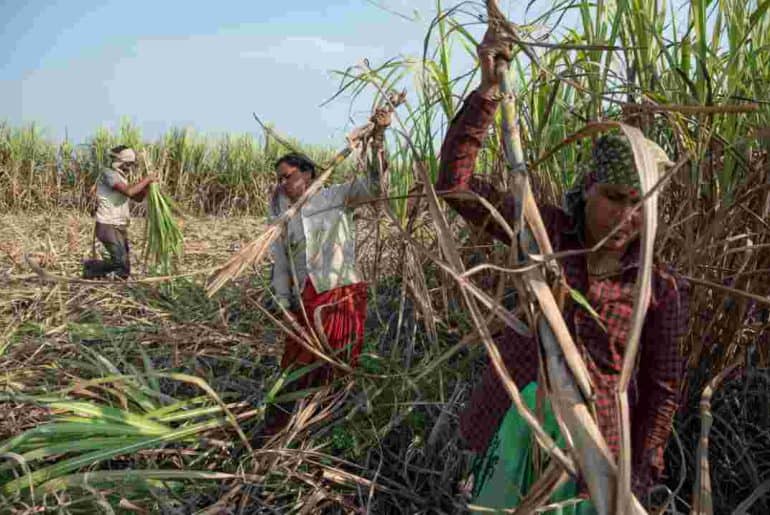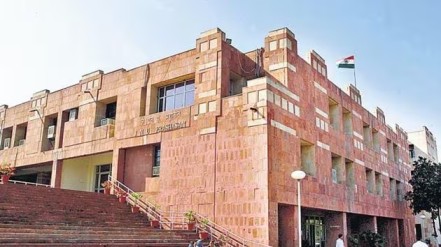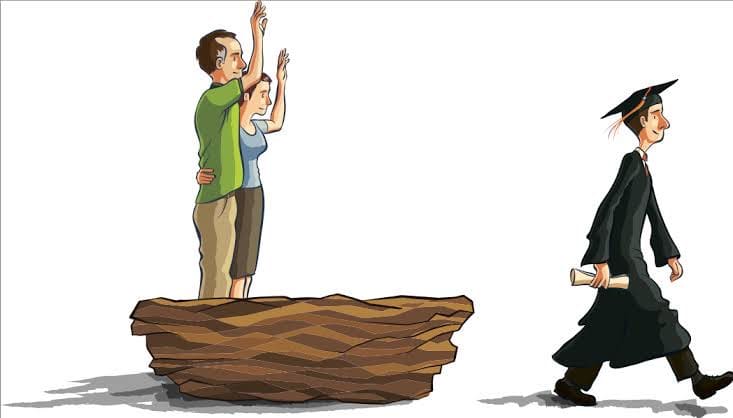DUSU Vice President, Abhi Dahiya, filed a complaint with the Delhi University Vice-chancellor on Friday, 5 July 2024, against the DUSU President Tushar Dedha alleging that, “he produced a false affidavit to contest elections.” However, Tushar Dedha has denied such allegations.
On Friday, 5 July 2024, DUSU (Delhi University Student Union) Vice President – Abhi Dahiya, filed a complaint against the DUSU President Tushar Dedha, with the Delhi University Vice-chancellor, alleging that the latter used “illegal means” to get admission to the University and produced a false affidavit to contest elections.


(Image Source: Abhi Dahiya via Instagram)
Incidentally, this is not the first time a DUSU President has been (allegedly) “exposed” for using illegal means to secure admission into the University. In 2018, the former ABVP-led DUSU President Ankiv Baisoya was involved in a similar incident. Following the NSUI presidential candidate Sunny Chillar’s challenge to Baisoya’s elections on the same grounds, the then-DUSU President resigned from his position and has been sacked by the ABVP. This occurred when his bachelor’s degree from Thiruvalluvar University in Tamil Nadu was found to be fraudulent.
Abhi Dahiya, in conversation with DU Beat, spoke out about the issue:
“The current DUSU President, Tushar Dedha has used ‘illegal means’ to gain admission within Delhi University. As per the records, the DUSU President holds two examination marksheets of intermediate class (Standard 12)- one from CBSE in Arts examination and the other from Madyamik Siksha Parishad Uttar Pradesh in Science Stream. How is it possible for one person to pass from two boards at two different places with two different streams? We urge the University to take stringent action against him as he does not deserve to remain the President for another minute, let alone an entire year.”
In his official complaint filed to the Vice-Chancellor of Delhi University, the Vice President of Delhi University’s Student Union cites that:
“As per the record received, he (Tushar Dedha) has two examination certificate/marksheets of intermediate class (12th), one from CBSE in Arts stream having roll number 9130384 and the other from Madyamik Siksha Parishad Uttar Pradesh in Science stream having roll number 0322496 District/School code 06/1328 both passed in year 2016 as a regular student.That as per the rules of both CBSE and Uttar Pradesh Board. It is mandatory for the regular student to have 75% attendance to appear in the 12th board examination and also, he has not passed equivalent Examination from any other Board. However, in case of Mr. Tushar Dedha, he holds two marksheets from two different Boards, both passed in year 2016 which is in total of Examination by-laws of CBSE and Madyamik Siksha Parishad Uttar Pradesh Board and therefore, both the mark-sheets are void.”
While speaking to DU Beat, Abhi Dahiya also notes that:
“Such illegal means have fooled the students of the University who put a lot of faith in their elected candidates while voting and we are looking forward to the University administration to take appropriate measures post the complaint by NSUI.”

Image Credits: Abhi Dahiya on X
The DU Beat team was unable to reach Tushar Dedha, but he took to his Instagram on 6 July, 2024, in response to the allegations:
“NSUI cannot digest the fact that a student hailing from a village, hailing from a backward class, not only contested elections for the post of DUSU President, but also won. My admission to the UG and PG programs at the university is fair, authentic and legal. They can approach any organisation for verification, and all their allegations would prove to be baseless. On the contrary, there are many student leaders of NSUI, against whom there have been allegations and ongoing investigation of fraudulent admissions and paper leaks. The fact that NSUI has remained silent on cases of 19 paper leaks in Congress-ruled Rajasthan, goes on to show their hypocrisy.”
Besides NSUI, several student political-parties of the left-bloc have taken their stance related to the issue.SFI Kamla Nagar Joint Secretary Aditi, spoke to DU Beat, reiterating SFI’s stance on the matter:
“The fact that this fraudulent action ‘escaped’ the eyes of the DU administration that is otherwise so strict about the document verification process, to the point that it puts the futures of so many common students at risk over issues in documents, does not seem like a mere coincidence. This issue also brings into question the authenticity of the educational qualifications of other DUSU office bearers and candidates. Students do not want frauds as their leaders. The DU administration should stop supporting the fraud of ABVP-led DUSU and penalise the goons who take admission using illegal measures to contest elections”
In a consolidatory stance, AISA (All India Students Association) took to its social media pages to question the ‘DU Admin and ABVP Nexus’ and alleged that:
“While DU Admin goes ahead with implementation of NEP through fee hikes, FYUP, SEC, VAC, seat cuts, fund cuts, graded autonomy and bulldozes social justice and gender justice, it lets its stooge ‘Akhil Bharatiya Violence Parishad loose on students resisting their exclusion and marginalization.”
Tushar Dedha graduated in BA Programme from Satyawati College in 2019 and is currently pursuing his post-graduation in MA (Buddhism) from Delhi University. Adding to the uproar of student political leaders on social media, NSUI National President, Varun Choudhary shared a copy of the complaint and Tushar Dedha’s marksheet on X and alleged:
“DUSU President Tushar Dedha made a fake 12th mark sheet from UP Board and CBSE Board in 2016 and ABVP gave him a student union ticket in 2023. ABVP and SCAM party leaders are relying on fake mark sheets. The DU administration should immediately take strict action.”
While the debacle brews on, DU Registrar Vikas Gupta cited to The Indian Express that:
“The issue has reached us and we will take a look into it on Monday.”
As per recent updates, the complaint demands that the results of DUSU Presidential elections be declared null and void and Dedha be sacked from his position. However, Dedha denied any wrongdoing and said he will file a defamation case.
Read Also: The Politicised Pareshani of DUSU 2023
Featured Image Credits: Arush Gautam for DU Beat
Gauri Garg
Priyanka Mukherjee











